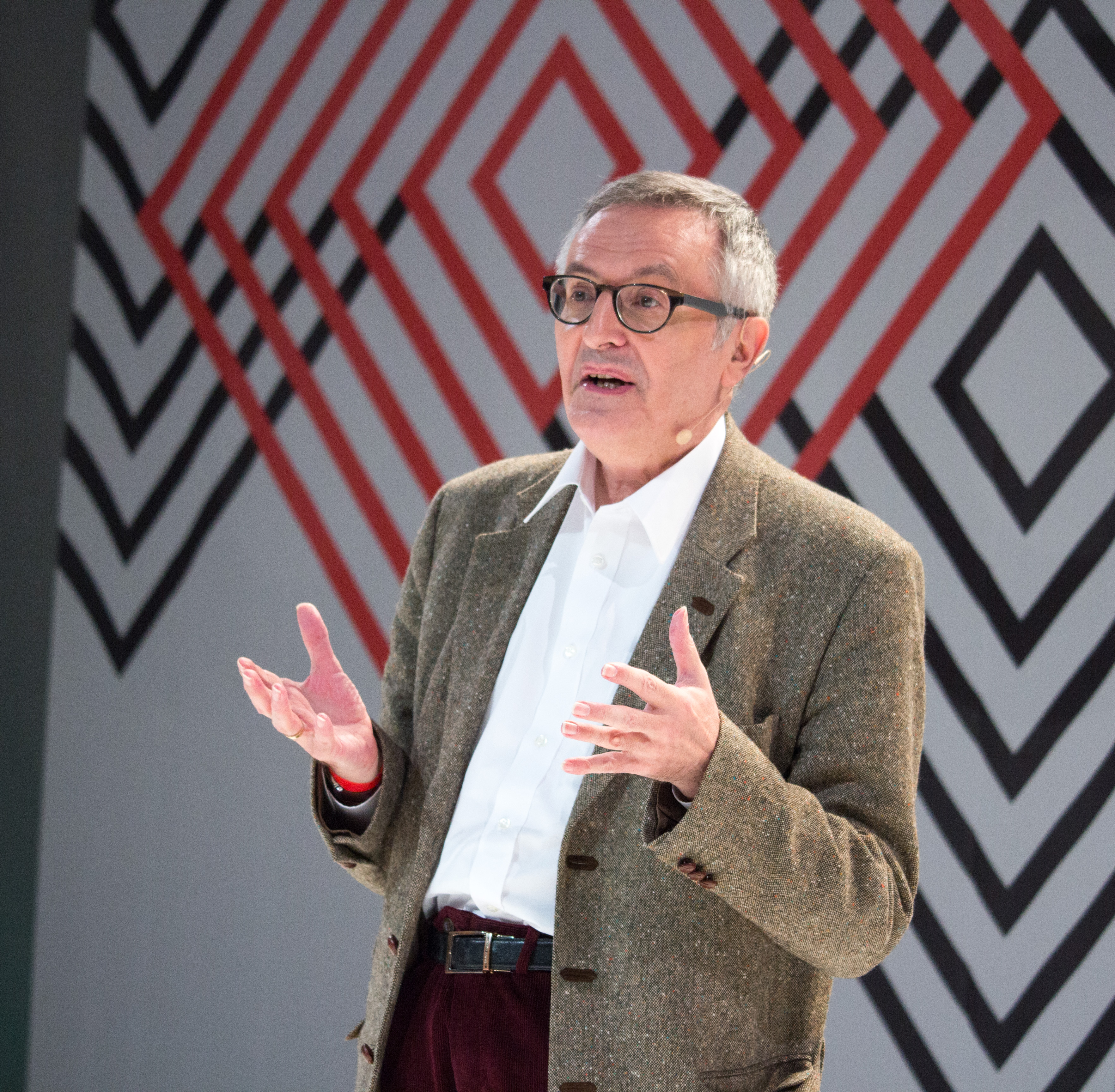The Unsaved: The Grand Inquisitor and Flying Fish (p. 124)
Straw Dogs: Thoughts on Humans and Other Animals (2002)
John Gray Quotes
'Santayana's Alternative' (p.67-8)
Gray's Anatomy: Selected Writings (2009)
"Look out for the enemy within," http://www.guardian.co.uk/uk/2005/jul/10/july7.terrorism The Observer (2005-07-10)
The Deception: Animal Faith (p. 55)
Straw Dogs: Thoughts on Humans and Other Animals (2002)
An Old Chaos: Frozen Horses and Deserts of Brick (p. 25)
The Silence of Animals: On Progress and Other Modern Myths (2013)
The Deception: Schopenhauer's Crux (p. 42-3)
Straw Dogs: Thoughts on Humans and Other Animals (2002)
The Deception: Schopenhauer's Crux (p. 44)
Straw Dogs: Thoughts on Humans and Other Animals (2002)
The Friedrich Hayek I knew, and what he got right - and wrong (2015)
The Human: Truth and Consequences (p. 28)
Straw Dogs: Thoughts on Humans and Other Animals (2002)
Sweet Morality (p. 224)
The Immortalization Commission: The Strange Quest to Cheat Death (2011)
The Human: Truth and Consequences (p. 28)
Straw Dogs: Thoughts on Humans and Other Animals (2002)
As It Is: Turning Back (p. 198)
Straw Dogs: Thoughts on Humans and Other Animals (2002)
Post-Apocalypse: After Secularism (pp. 267-8)
Black Mass: Apocalyptic Religion and the Death of Utopia (2007)
Cross-correspondences (p. 68)
The Immortalization Commission: The Strange Quest to Cheat Death (2011)
“We cannot be rid of illusions. Illusion is our natural condition. Why not accept it?”
The Deception: The Ultimate Dream (p. 81)
Straw Dogs: Thoughts on Humans and Other Animals (2002)
The Faith of Puppets: The Faith of Puppets (p. 18-9)
The Soul of the Marionette: A Short Enquiry into Human Freedom (2015)
The Human: Why Humanity Will Never Master Technology (p. 14)
Straw Dogs: Thoughts on Humans and Other Animals (2002)
Quoted in Will Self, "John Gray: Forget everything you know," http://web.archive.org/web/20080403080859/http://www.independent.co.uk/news/people/john-gray-forget-everything-you-know-641878.html The Independent (2002-09-03)
The Deception: Postmodernism (p. 54-55)
Straw Dogs: Thoughts on Humans and Other Animals (2002)
Post-Apocalypse: After Secularism (pp. 262-3)
Black Mass: Apocalyptic Religion and the Death of Utopia (2007)
Cross-correspondences (pp. 32-3)
The Immortalization Commission: The Strange Quest to Cheat Death (2011)
The Atheist Delusion (2008)
The Human: Science versus Humanism (p. 3)
Straw Dogs: Thoughts on Humans and Other Animals (2002)
The Vices of Morality: Socrates, the inventor of morality (p. 106)
Straw Dogs: Thoughts on Humans and Other Animals (2002)
The Friedrich Hayek I knew, and what he got right - and wrong (2015)
The Vices of Morality: Psychoanalysis and moral luck (p. 104)
Straw Dogs: Thoughts on Humans and Other Animals (2002)
Sweet Morality (p. 212)
The Immortalization Commission: The Strange Quest to Cheat Death (2011)
The Human: Against fundamentalism ― religious and scientific (p. 18)
Straw Dogs: Thoughts on Humans and Other Animals (2002)
Review: Sacred Causes http://www.guardian.co.uk/books/2006/oct/28/politics by Michael Burleigh (2006-10-28)
Sweet Morality (p. 222)
Source: The Immortalization Commission: The Strange Quest to Cheat Death (2011)
'Modus Vivendi' (p.28)
Gray's Anatomy: Selected Writings (2009)
The Unsaved: The Mirror of Solitude (p. 150-1)
Straw Dogs: Thoughts on Humans and Other Animals (2002)
An Old Chaos: The Call of Progress (pp. 6-7)
The Silence of Animals: On Progress and Other Modern Myths (2013)
'Modus Vivendi' (p.29)
Gray's Anatomy: Selected Writings (2009)
Enlightenment and Terror in the Twentieth Century: Terror and the Western Tradition
Black Mass: Apocalyptic Religion and the Death of Utopia (2007)
A Modest Proposal (2003)
The Deception: At the Masked Ball (p. 38)
Straw Dogs: Thoughts on Humans and Other Animals (2002)
In the Puppet Theatre: Roof Gardens, Feathers and Human Sacrifice (p. 80)
The Soul of the Marionette: A Short Enquiry into Human Freedom (2015)
The Human: Truth and Consequences (p. 27)
Straw Dogs: Thoughts on Humans and Other Animals (2002)
An Old Chaos: Frozen Horses and Deserts of Brick (p. 22)
The Silence of Animals: On Progress and Other Modern Myths (2013)
The Deception: Nietzsche's Optimism (p.47-8)
Straw Dogs: Thoughts on Humans and Other Animals (2002)
In The Puppet Theatre: Puppetry, Conspiracy and Ouija Boards (p. 136)
The Soul of the Marionette: A Short Enquiry into Human Freedom (2015)
The Vices of Morality: Justice and Fashion (p. 102-3)
Straw Dogs: Thoughts on Humans and Other Animals (2002)
In the Puppet Theatre: Roof Gardens, Feathers and Human Sacrifice (p. 87)
The Soul of the Marionette: A Short Enquiry into Human Freedom (2015)
The Human: Science's Irrational Origins (p. 22)
Straw Dogs: Thoughts on Humans and Other Animals (2002)
“Progress in civilization seems possible only in interludes when history is idling.”
An Old Chaos: The Emperor's Tomb (p. 35)
The Silence of Animals: On Progress and Other Modern Myths (2013)
